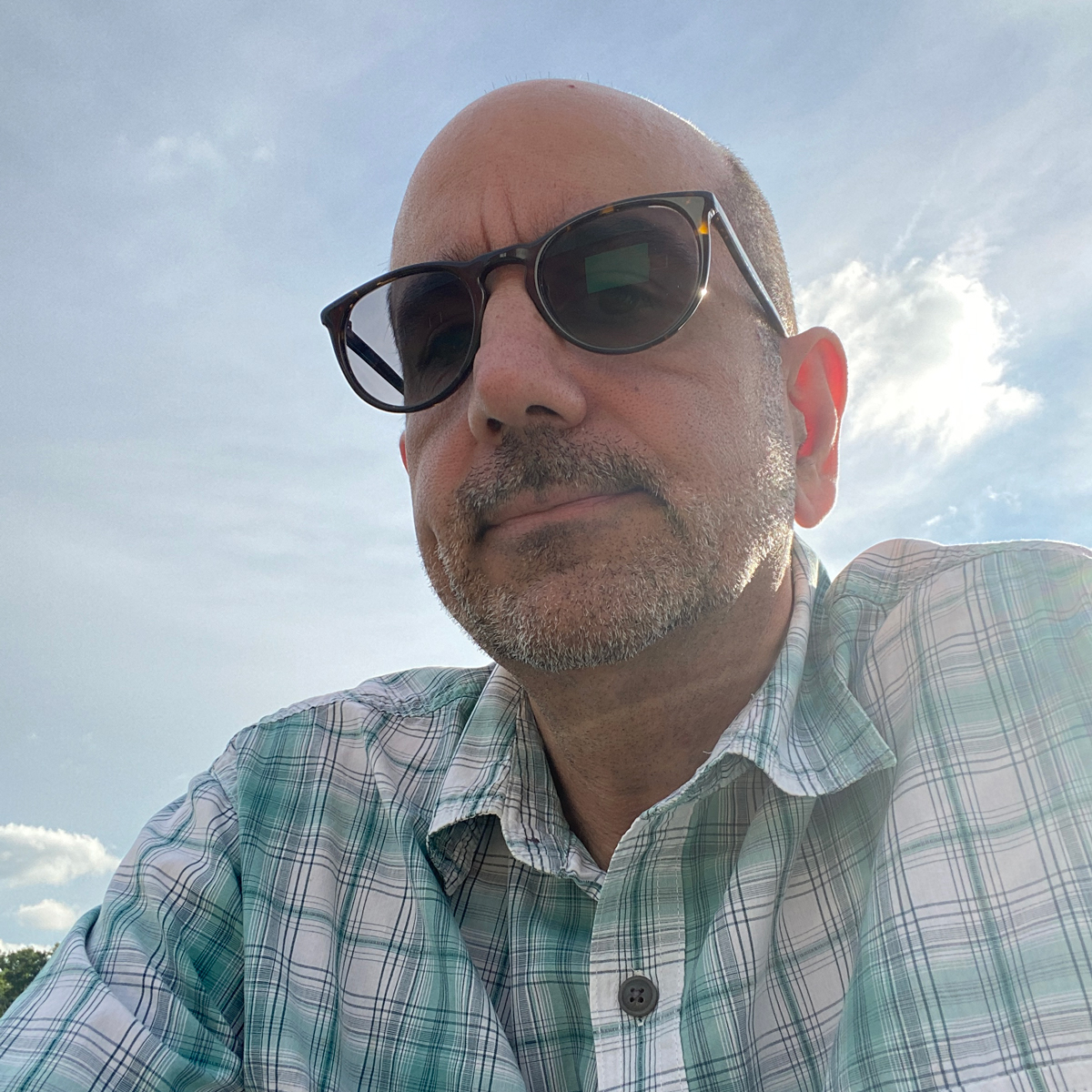The life and times of Alexi Laiho, the Wildchild who revolutionized demonic shred
Guitar World pays tribute to the Children of Bodom guitarist who changed the face of metal in the 1990s and 2000s

As Guitar World crosses into its fifth decade of existence, we’ve certainly had to grapple with our fair share of deaths over the years.
We’ve said goodbye to countless six-string heroes, including Randy Rhoads, Chuck Berry, Johnny Winter, Stevie Ray Vaughan, Malcolm Young, Prince, Tom Petty and Chris Cornell, among many others.
Truth be told, it always stings a bit more when we have to bid farewell to one of our own, someone who not only had an impact on us musically, but who we were proud to consider part of our family.
Dimebag Darrell, Chuck Schuldiner and Eddie Van Halen are a few who fall into that esteemed category – and it is with a heavy heart that we add Alexi Laiho to our list of friends who left us much too soon.
Laiho, longtime guitarist and vocalist for wickedly shredderific Finnish speed/death metal outfit Children of Bodom, died at his home in Helsinki, Finland, December 29 2020.
The 41-year-old musician had suffered from long-term health issues during the last years of his life, with Laiho's former Sinergy bandmate and legal wife at the time of his death, Kimberly Goss, revealing that the Children of Bodom frontman died due to “alcohol-induced degeneration of the liver and pancreas connective tissue.”
Guitar World’s history with Laiho dates back to 2003, 10 years or so after the guitarist formed the group Inearthed with his longtime friend Jaska Raatikainen; Inearthed would record three demo tapes before signing a deal with Spinefarm Records and changing their name to Children of Bodom.
Get The Pick Newsletter
All the latest guitar news, interviews, lessons, reviews, deals and more, direct to your inbox!
Laiho first appeared in the magazine’s November 2003 issue; writer Brian Stillman accurately described Children of Bodom in the short introductory article as having a “crushingly brutal, yet melodically complex sound that combines million-mile-an-hour power chords with sweeping arpeggios, Vai-inspired solos and infectious leads.”
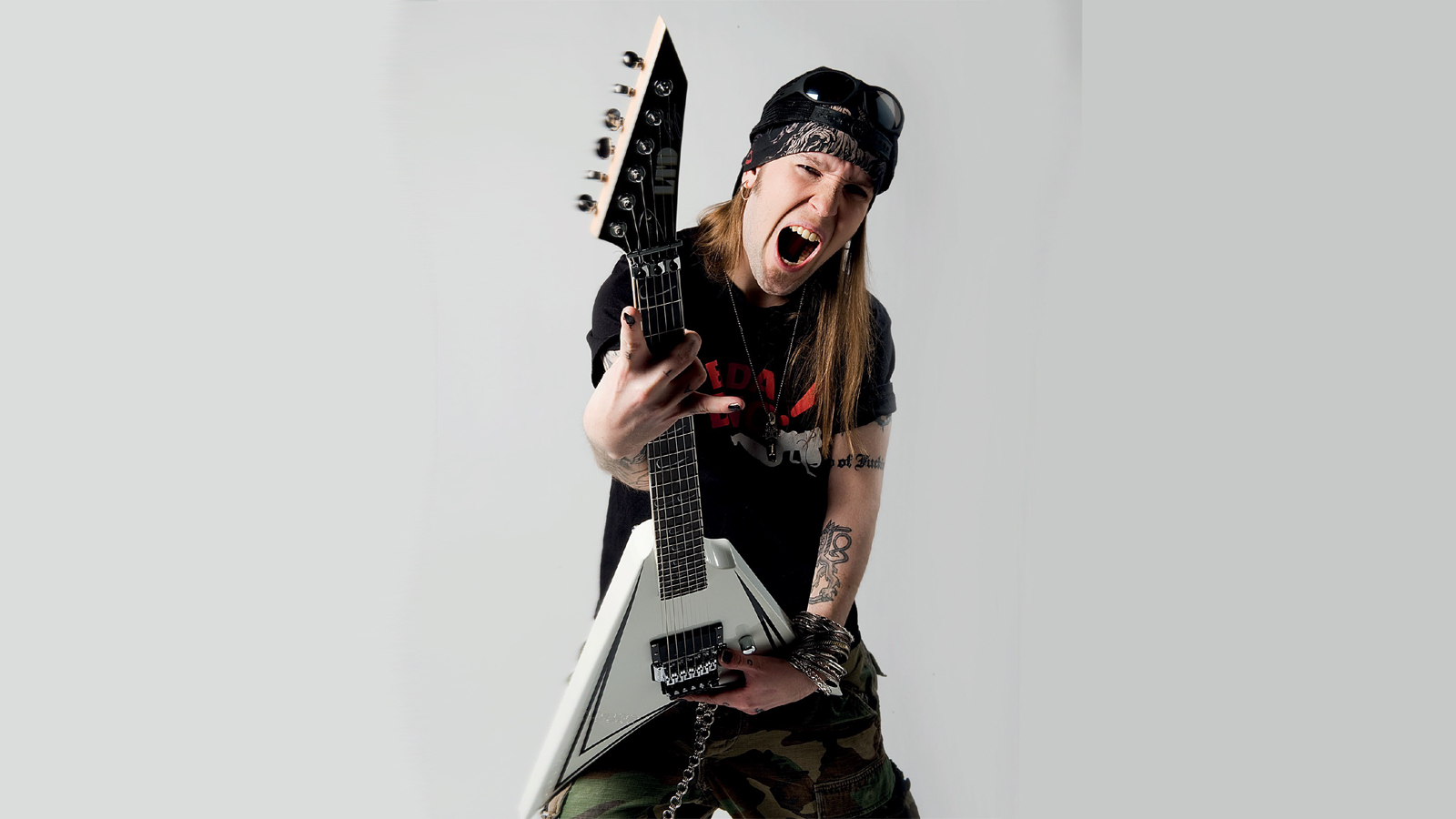
Laiho became a fixture in our pages for many years afterward, as we wholeheartedly embraced our mission to champion this young world-class musician as the new hotshot shredder in town.
I was 10 years old and watching MTV when the video for Steve Vai’s For the Love of God came on. That was the moment I knew I had to start playing
Alexi Laiho
He gave us his time for interviews and photo shoots, participated in lessons both in print and on video, became a Guitar World celebrity columnist between 2004 and 2005, and even conducted a brief interview with the aforementioned Jeff Hanneman from Slayer in our September 2006 issue.
Laiho appeared on the cover of our April 2005 Virtuoso Issue alongside Steve Vai and Zakk Wylde and also earned a spot in our 50 Fastest Guitarists roundup in July 2008, as well as our 100 Greatest Metal Guitarists of All-Time blowout special in March 2004.
Yes, there was a whole lotta Laiho in our pages over the years — Alexi never said no to any of our requests, and it was our pleasure to devote as much ink to his cause and his music as we did.
Alexi Laiho was born Markku Uula Aleksi Laiho on April 8, 1979, in Espoo, Finland. He showed virtuosic signs at an early age, learning to play violin at five and listening primarily to classical music as a youth. His parents even told him that he was singing before he could talk.
“It’s a little weird, I know,” the guitarist acknowledged to Guitar World in 2005. At 10, Laiho had a religious awakening: he saw God. “I was 10 years old and watching MTV when the video for Steve Vai’s For the Love of God from the Passion and Warfare album came on,” he told us.
“That was the moment I knew I had to start playing. Not only did it blow me away, it also opened up a whole new world for me.”
As Laiho’s interest in music shifted from classical to glam metal and shred, his parents were fully onboard with his transformation; his father even bought Alexi his first guitar when he was 11, a white Tokai Stratocaster.
“A good guitar,” Laiho told us. “Every day I’d run home from school and play it until my parents would almost have to physically knock me out to get me to sleep.” Laiho took his obsession with the guitar to new heights while in high school, ultimately cutting classes to stay home and woodshed and teach himself heavy metal and shred techniques from instructional videos.
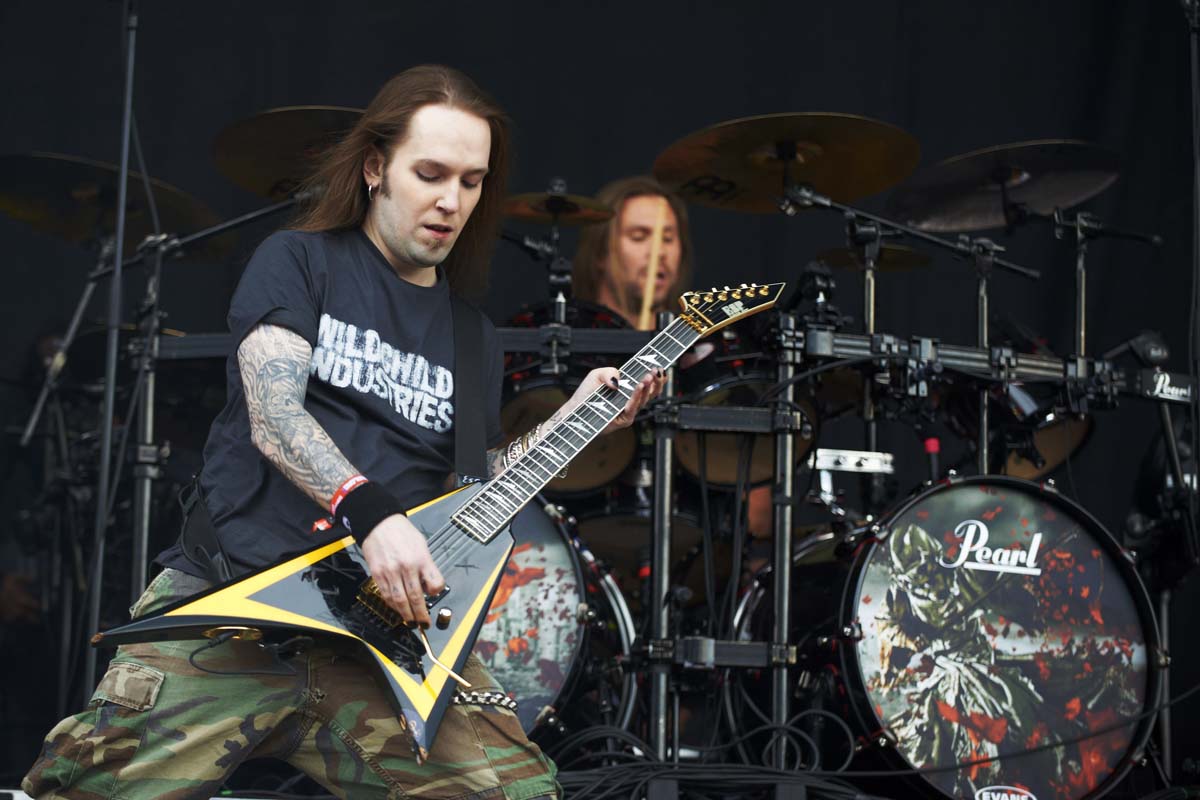
“Something had to be sacrificed; for me it was school,” said the guitarist. “I didn’t care. I didn’t have any interest in what my teachers were telling me, and my mom knew I wasn’t going to graduate high school anyway. She helped me succeed in the thing that interested me.”
While in high school, Laiho became friends with Raatikainen, who played drums, and together the two jammed and formed the basis for what would become Inearthed and ultimately Children of Bodom.
Every day I’d run home from school and play guitar until my parents would almost have to physically knock me out to get me to sleep
Inearthed released a trio of demo tapes in the mid Nineties and gained some local notoriety playing clubs in Finland before inking what Laiho described to us as “the shittiest contract ever” with a Belgian record label.
While under contract with the Belgian label, the thoroughly more high-profile Spinefarm Records took an interest in Inearthed and offered to sign the group to a more desirable contract. In order to squirm out of their deal with the Belgians, Laiho and company told the label that Inearthed had broken up and would be unable to deliver an album.
Now that they were free agents, the group was able to “reform” under the new name Children of Bodom and sign with Spinefarm. The signing with Spinefarm brought about some immediate and significant changes for Laiho and his Children of Bodom bandmates.
The band issued its debut album, Something Wild, in November 1997 and embarked on tours to support the record that succeeded in increasing the group’s popularity outside their home base.
One particular tour with headliners Hypocrisy and Covenant also exposed Laiho and friends to the untamed rock and roll lifestyle that Laiho had seen on MTV as a youth.
“We’d never been anywhere with free booze before,” said Laiho. “That was great! We were riding on the bus with the other bands – it was a huge bus – and just having a great time. They accepted us very quickly, once they could see that we knew how to play and how to party.”
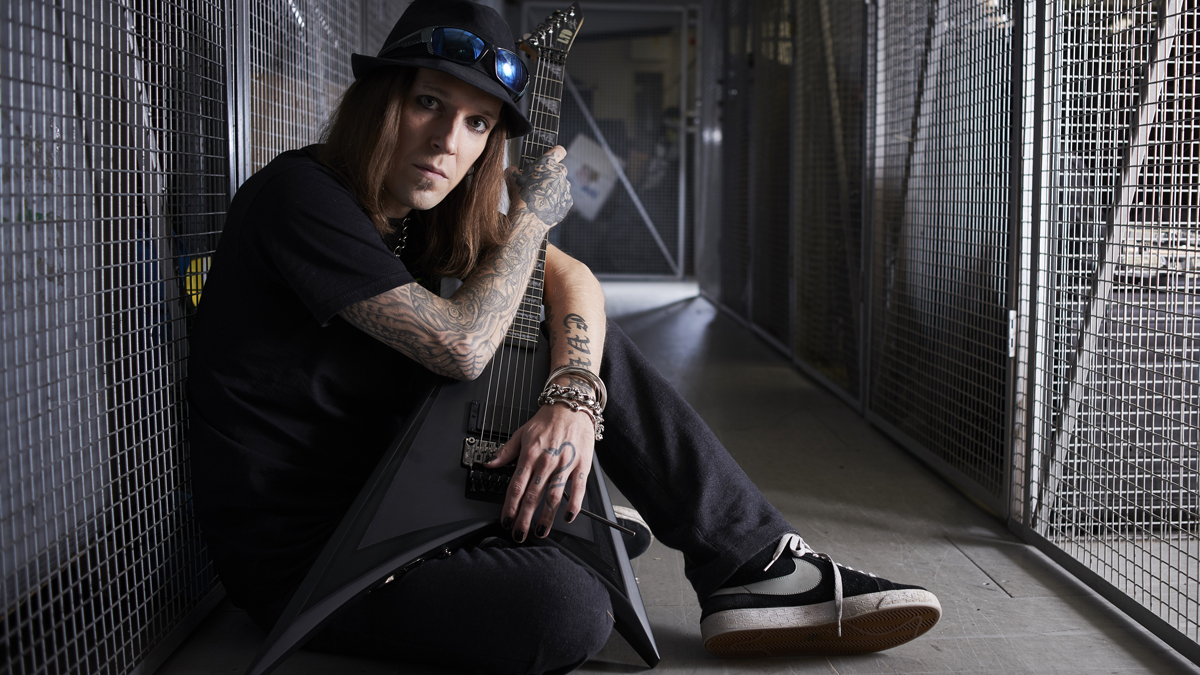
In the years that followed the release of Something Wild, Children of Bodom grew in popularity and became one of the underground’s leading purveyors of melodic death metal, thanks largely to the frantic power riffing and blindingly fast lead runs Laiho churned out on any of the sharp-angled ESP guitars he typically brandished onstage and in the studio.
Such albums as Hate Crew Deathroll (2003), Are You Dead Yet? (2005), Blooddrunk (2008) and Relentless Reckless Forever (2011) made Children of Bodom a household name in extreme-metal circles and brought Laiho the international acclaim he had longed for.
If there was a downside to Children of Bodom attaining global success, it was that it afforded Laiho the opportunity to engage in self-destructive behavior, which took a tremendous toll on the gifted young ace.
Laiho’s career spanned roughly 25 years, and during much of that time the guitarist was in a constant battle against drugs, alcohol and depression, all of which contributed to too many frightening episodes, trips to the hospital and broken bones for the Nordic neoclassicist.
In late 1998, a 19-year-old Laiho attempted suicide by ingesting a lethal combination of 30 tranquilizers and a few shots of whiskey. “A friend found me on the floor and brought me to the hospital. I wasn’t in a good place,” said the guitarist in 2005.
Unfortunately for Laiho – who was also prone to cutting around this time – the suicide attempt was merely the beginning. “I was just feeling worse and worse,” he said. “Finally, a couple years after the pills, I had a complete mental breakdown and ended up in a hospital for a week. It was my third time. It was the worst I’d ever felt in my life.”
At first people were laughing, and I was even laughing. All of a sudden, my shoulder swelled up huge, and I knew I had broken my arm
Alexi Laiho
Laiho’s uncanny ability to find himself in harmful situations escalated to alarming levels. In 2006 the guitarist – who certainly earned his nickname of “Wildchild” – fell off the top of a car while drunk and broke his wrist. A year later, it was his arm that was in need of repair.
“My friends were bowling, and drinking white Russians,” he told Guitar World in 2008. “I got a strike, and I did a little dance or something, but since I was drunk, I slipped. Somehow, I flipped upside down and landed on my left shoulder. At first people were laughing, and I was even laughing, but then I was like, Oh shit, this doesn’t feel right. All of a sudden, my shoulder swelled up huge, and I knew I had broken my arm.”
The recovery process this time was by no means quick – for six weeks, his left arm was rendered immobile in a sling because his bones were not healing properly, and afterward he spent months in intense physical therapy just to be able to play below the 12th fret. It was a sobering incident for the guitarist, but only to a minimal degree.
“After that experience, I am seriously done with that shit,” he told us. “Well, I’m not done with bowling, or drinking, for that matter. [Laughs] But I have caused enough damage to myself. I’ve broken too many bones.”
Unfortunately for Laiho, the punishment on his body continued well beyond the bowling incident. Two years later, he broke his shoulder after being hurled from a bunk on Bodom’s tour bus when the driver took a sharp turn. While drinking may not have been a factor in this particular mishap, the injury suggested that the guitarist was becoming increasingly brittle for a young rocker.
Laiho was well aware of the damage that was being inflicted on his body as a result of these and other isolated incidents, but perhaps the biggest wake-up call of all for him came on a mid-January morning in Anaheim, California, during the annual NAMM musical instrument convention.
At 8 a.m. on the morning of a scheduled appearance at the convention, Laiho woke up and immediately began vomiting blood. He waited for it to pass, thinking he was merely suffering the effects of a particularly gruesome hangover, but the bleeding and vomiting persisted for nine hours straight.
After checking himself into a hospital, doctors gave him the startling diagnosis. “I had a bleeding ulcer, and it was pretty fucking bad,” Laiho told Guitar World in 2011. “I was puking my guts out, and it wouldn’t stop. It just kept going, and I couldn’t hold anything in. I had to stay in the hospital for four days or so. I was on a bunch of IV drips to keep me hydrated. It was the worst fucking thing ever. Seriously.”
Laiho was lucky to survive the incident, and realized that his hard-partying ways had caught up to him.
“They told me there was no permanent stomach damage, but that I had to detoxify and get out of this habit of excessive drinking. It really made me see that you shouldn’t need to take five shots of whiskey before you become normal, you know?”
Still, even being hospitalized wasn’t enough to prompt Laiho to change his ways entirely. “It was a good thing I was in the hospital,” he told us. “But since I got out, I haven’t been drinking much, just a few beers here and there. I’ve completely cut out the hard stuff. I don’t even want to think about having shots.
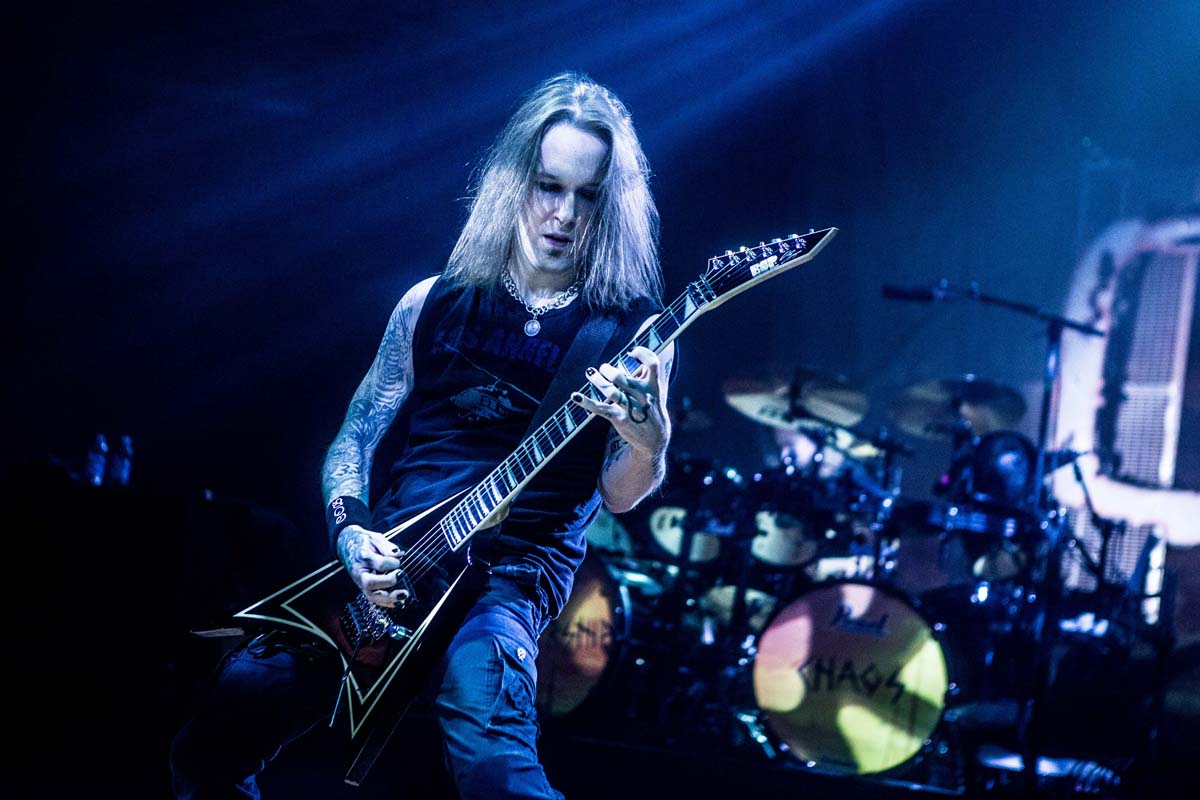
“I’m not saying I’m gonna stop forever. It’s just not something I’m thinking about now. I guess I always have to learn things the hard way. It just made me realize that I can’t go on that way and I have to take better care of myself.”
Children of Bodom continued recording and touring in the years following Laiho’s hospital stay in Anaheim, but ultimately disbanded in December 2019.
Following the dissolution of COB, Laiho then directed his musical attention toward forming a new group called Bodom After Midnight, which spent 2020 recording songs and readying its debut album, which was scheduled to be released this year.
Laiho’s final live appearance occurred with Bodom After Midnight on October 23, 2020, in Seinäjoki, Finland. He leaves behind a tremendous 27-year legacy of uncompromising metal and mayhem.
- Bodom After Midnight's Paint the Sky With Blood EP is out on April 23 via Napalm.
As a teenager, Jeff Kitts began his career in the mid ’80s as editor of an underground heavy metal fanzine in the bedroom of his parents’ house. From there he went on to write for countless rock and metal magazines around the world – including Circus, Hit Parader, Metal Maniacs, Rock Power and others – and in 1992 began working as an assistant editor at Guitar World. During his 27 years at Guitar World, Jeff served in multiple editorial capacities, including managing editor and executive editor before finally departing as editorial director in 2018. Jeff has authored several books and continues to write for Guitar World and other publications and teaches English full time in New Jersey. His first (and still favorite) guitar was a black Ibanez RG550.
“I heard the Money solo and thought, ‘This is amazing!’ So I sent David a telegram saying, ‘Remember me? I'm in a band now called Roxy Music’”: Phil Manzanera on his friendship with David Gilmour, and the key to the Pink Floyd man's unmistakable tone
“It’s really quite genius, but also hard to learn – it sounds insane, but sometimes the easiest songs still get me nervous”: Kiki Wong reveals the Smashing Pumpkins song she had the most trouble with
